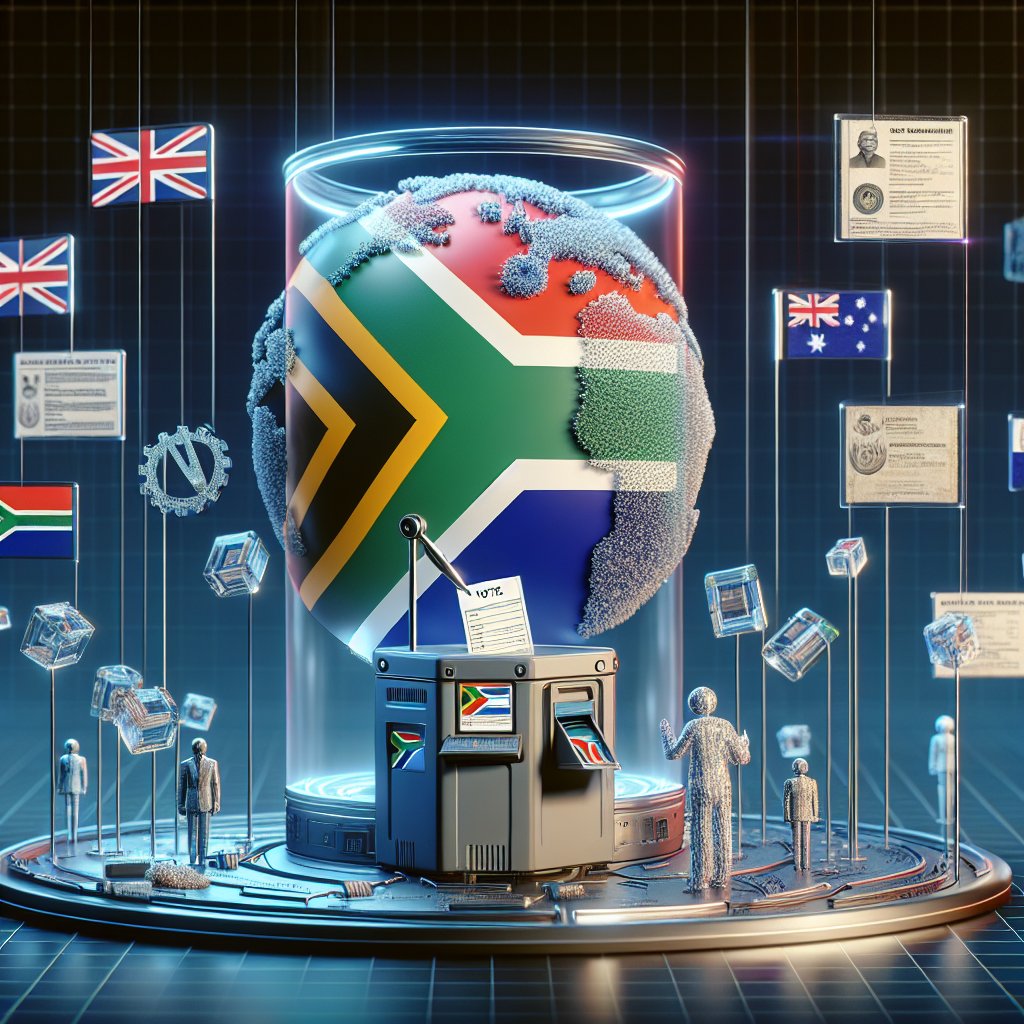Image created by AI
IEC Seeks International Help Amid Resource Constraints for South African Voters Abroad
The Electoral Commission of South Africa (IEC) is facing unprecedented challenges as it prepares for the upcoming election, notably in ensuring that South African citizens living abroad are able to cast their votes. In a move indicative of deeper financial constraints, the IEC has instructed South African diplomatic missions to secure voting booths and ballot boxes from host countries. This decision has prompted unease amongst diplomats and raised questions about the integrity of the voting process for South Africans overseas.
Historically, the IEC has taken full responsibility for providing branded voting materials to international missions, ensuring a consistent and controlled environment for South Africans voting abroad. However, recent communications suggest a shift in approach, likely driven by the budgetary pressures outlined in the Treasury's January announcements. The cuts have left the IEC grappling with a R607.2m reduction, substantially affecting its operational capabilities.
Moreover, the push for foreign assistance with election materials has not only stirred discomfort but has also led to broader security requests. Missions are being asked to coordinate with host countries for police presence to safeguard voters, as well as measures to prevent protests and other potential disruptions on election day. The comprehensive strategy of the IEC, aimed at facilitating a seamless and secure voting experience, extends beyond mere logistical support, reflecting the depth of the funding dilemma.
South Africans living abroad are a significant electoral group, with more than 58,000 eligible voters scattered across the globe. High concentrations are found in countries like the UK, the US, and Australia, where logistical concerns have magnified. This has driven the Democratic Alliance (DA) to champion legal efforts to expand voting stations overseas and to simplify ID requirements, reducing travel burdens on overseas voters.
The matter of voting accessibility has reached the courts, with the DA succeeding in easing identification requirements and currently pursuing further litigation for additional voting venues. Particularly in vast territories like Australia and the US, the availability of voting stations significantly affects voter participation.
The financial predicament of the IEC is not entirely unanticipated. The commission had previously acknowledged to parliament's committee on home affairs its struggle to deliver free and fair elections without full funding. It pinpoints a reliance on surplus savings from the previous year and anticipated aid from the Treasury in its medium-term expenditure framework as stopgap measures.
Expert opinions, such as those from independent election specialist Grant Masterson, highlight the substantial costs of facilitating voting abroad and the undue strain on voters themselves. Similarly, seasoned ex-ambassador Gert Grobler has voiced apprehension over the unprecedented request for foreign assistance, citing potential risks to the sanctity of South Africa's electoral process.
As the IEC navigates these financial and logistical challenges, the integrity of South Africa's electoral process hangs in the balance, underscoring the criticality of ensuring that every citizen's vote, regardless of their location, is appropriately handled and counts.










